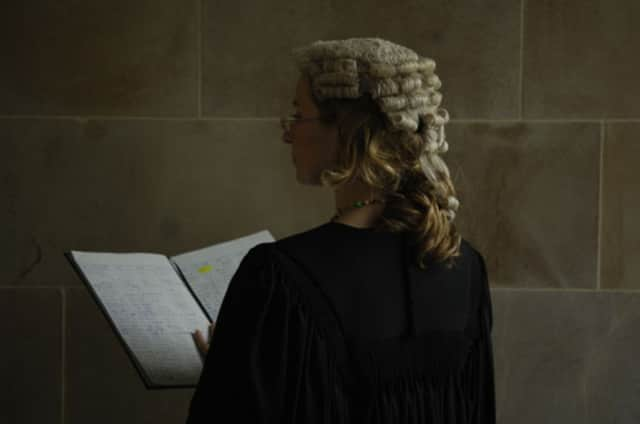Criminal cases taking longer after court closures


Research by the Scottish Conservatives shows the number of cases being settled within the target 26 weeks has fallen by 10 per cent.
According to the statistics, about 74 per cent of cases were concluded in that time frame in justice of the peace (JP) courts between September and December last year, but that fell sharply to 68 per cent in January, and has continued to drop since.
Advertisement
Hide AdAdvertisement
Hide AdIn sheriff courts, the number of cases resolved in 26 weeks fell from 72 per cent before the initial closures were implemented, to 68 per cent after.
Scottish Court Service (SCS) plans to close ten sheriff courts and seven JP courts were accepted by the Scottish Government and backed by MSPs last year.
The first wave of closures took place in November, with courts in Annan, Cumbernauld, Irvine, Motherwell, Dornoch, Kirkcudbright and Rothesay shut. Closures took place in Arbroath, Cupar and Stonehaven in May.
Opponents warned the remaining courts would struggle with the increased workload, but the SCS yesterday denied the delays were due to closures.
The figures were released after parliamentary questions by Tory justice spokeswoman Margaret Mitchell. She said: “The Scottish Government was adamant there would be no impact on cases once these closures were implemented.
“But clearly this is not the case as evidenced from these figures and this is a situation which can only get worse as more courts face closure across the country.”
She said the SNP government’s decision to close the courts had been “damaging”, with “adverse consequences for victims and witnesses”.
Ms Mitchell added: “The SNP government was warned repeatedly that these closures were short-sighted, that staff would be overstretched and that cases would be delayed and that’s exactly what is now happening in our sheriff and JP courts.”
Advertisement
Hide AdAdvertisement
Hide AdThe statistics also revealed the average time it is taking for cases to be resolved is rising.
In December, it took an average of 154 days for a summary criminal case to go through a JP court, but by April it was 177 days. In addition, it took 139 days for a sheriff court case to conclude in December, compared with 147 days in April.
SCS chief executive Eric McQueen said the drop in the number of cases being settled within 26 weeks was not due to court closures.
Mr McQueen added: “As we have been very clear, the court closures will result in a redistribution of only 5 per cent of the overall business to courts with sufficient capacity and no reduction in judicial or court staff.”
The increases were instead a reflection of “more proactive policing and prosecution, better evidence gathering and greater confidence amongst victims in reporting certain crimes, he said.
A government spokeswoman added: “Ninety-five per cent of court business is unaffected by recent changes to court structures.”